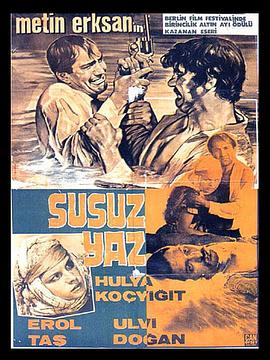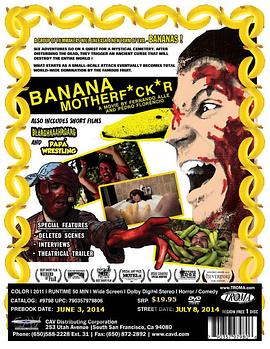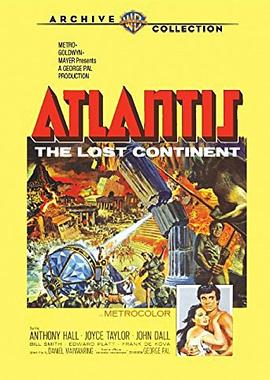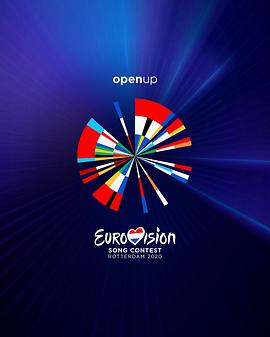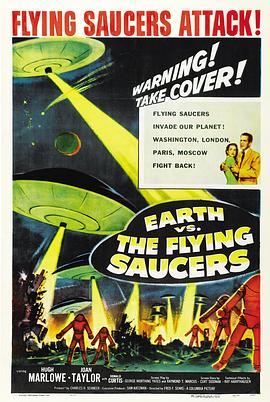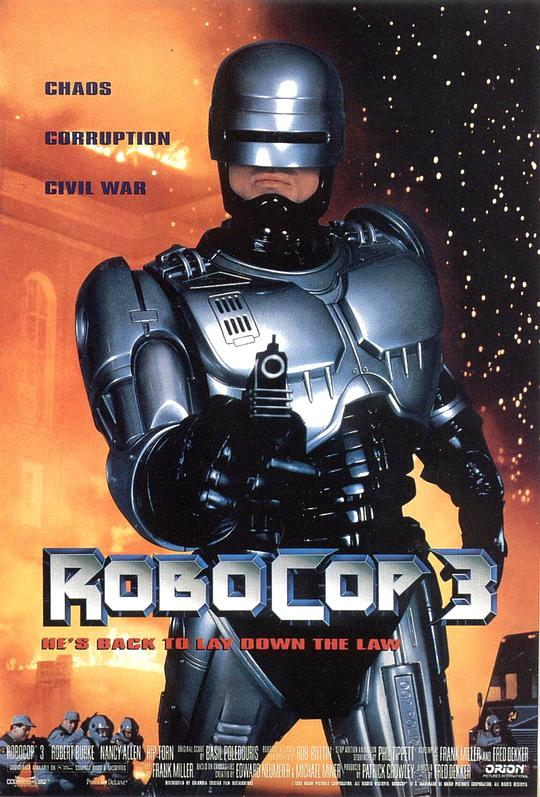-
备注:已完结
类型:泰剧
主演:诺帕考·德查帕塔纳坤 Leang Pitak Phasuthonmek
导演:未知
语言:其它
年代:未知
简介: 兄弟之间的爱、老师与学生之间的爱、学弟与学长之间的爱,本剧讲述朋友之间各种复杂而又相关联的爱情故事。
-
备注:已完结
类型:战争片
主演:Andrzej Banaszewski Beata Barszczew
导演:斯坦尼斯拉夫·罗泽维格
语言:其它
年代:未知
简介: In 1961, Stanislaw Rozewicz created the novella film "Birth Certificate" in cooperation with his brother, Taduesz Rozewicz as screenwriter. Such brother tandems are rare in the history of film but aside from family ties, Stanislaw (born in 1924) and Taduesz (born in 1921) were mutually bound by their love for the cinema. They were born and grew up in Radomsk, a small town which had "its madmen and its saints" and most importanly, the "Kinema" cinema, as Stanislaw recalls: for him cinema is "heaven, the whole world, enchantment". Tadeusz says he considers cinema both a charming market stall and a mysterious temple. "All this savage land has always attracted and fascinated me," he says. "I am devoured by cinema and I devour cinema; I'm a cinema eater." But Taduesz Rozewicz, an eminent writer, admits this unique form of cooperation was a problem to him: "It is the presence of the other person not only in the process of writing, but at its very core, which is inserperable for me from absolute solitude." Some scenes the brothers wrote together; others were created by the writer himself, following discussions with the director. But from the perspective of time, it is "Birth Certificate", rather than "Echo" or "The Wicked Gate", that Taduesz describes as his most intimate film. This is understandable. The tradgey from September 1939 in Poland was for the Rozewicz brothers their personal "birth certificate". When working on the film, the director said "This time it is all about shaking off, getting rid of the psychological burden which the war was for all of us. ... Cooperation with my brother was in this case easier, as we share many war memories. We wanted to show to adult viewers a picture of war as seen by a child. ... In reality, it is the adults who created the real world of massacres. Children beheld the horrors coming back to life, exhumed from underneath the ground, overwhelming the earth." The principle of composition of "Birth Certificate" is not obvious. When watching a novella film, we tend to think in terms of traditional theatre. We expect that a miniature story will finish with a sharp point; the three film novellas in Rozewicz's work lack this feature. We do not know what will be happen to the boy making his alone through the forest towards the end of "On the Road". We do not know whether in "Letter from the Camp", the help offered by the small heroes to a Soviet prisoner will rescue him from the unknown fate of his compatriots. The fate of the Jewish girl from "Drop of Blood" is also unclear. Will she keep her new impersonation as "Marysia Malinowska"? Or will the Nazis make her into a representative of the "Nordic race"? Those questions were asked by the director for a reason. He preceived war as chaos and perdition, and not as linear history that could be reflected in a plot. Although "Birth Certificate" is saturated with moral content, it does not aim to be a morality play. But with the immense pressure of reality, no varient of fate should be excluded. This approached can be compared wth Krzysztof Kieslowski's "Blind Chance" 25 years later, which pictured dramatic choices of a different era. The film novella "On the Road" has a very sparing plot, but it drew special attention of the reviewers. The ominating overtone of the war films created by the Polish Film School at that time should be kept in mind. Mainly owing to Wajda, those films dealt with romantic heritage. They were permeated with pathos, bitterness, and irony. Rozewicz is an extraordinary artist. When narrating a story about a boy lost in a war zone, carrying some documents from the regiment office as if they were a treasure, the narrator in "On the Road" discovers rough prose where one should find poetry. And suddenly, the irrational touches this rather tame world. The boy, who until that moment resembled a Polish version of the Good Soldier Schweik, sets off, like Don Quixote, for his first and last battle. A critic described it as "an absurd gesture and someone else could surely use it to criticise the Polish style of dying. ... But the Rozewicz brothers do no accuse: they only compose an elegy for the picturesque peasant-soldier, probably the most important veteran of the Polish war of 1939-1945." "Birth Certificate" is not a lofty statement about national imponderabilia. The film reveals a plebeian perspective which Aleksander Jackieqicz once contrasted with those "lyrical lamentations" inherent in the Kordian tradition. However, a historical overview of Rozewicz's work shows that the distinctive style does not signify a fundamental difference in illustrating the Polish September. Just as the memorable scene from Wajda's "Lotna" was in fact an expression of desperation and distress, the same emotions permeate the final scene of "Birth Certificate". These are not ideological concepts, though once described as such and fervently debated, but rather psychological creations. In this specific case, observes Witold Zalewski, it is not about manifesting knightly pride, but about a gesture of a simple man who does not agree to be enslaved. The novella "Drop of Blood" is, with Aleksander Ford's "Border Street", one of the first narrations of the fate of the Polish Jews during the Nazi occupation. The story about a girl literally looking for her place on earth has a dramatic dimension. Especially in the age of today's journalistic disputes, often manipulative, lacking in empathy and imbued with bad will, Rozewicz's story from the past shocks with its authenticity. The small herione of the story is the only one who survives a German raid on her family home. Physical survial does not, however, mean a return to normality. Her frightened departure from the rubbish dump that was her hideout lead her to a ruined apartment. Her walk around it is painful because still fresh signs of life are mixed with evidence of annihilation. Help is needed, but Mirka does not know anyone in the outside world. Her subsequent attempts express the state of the fugitive's spirits - from hope and faith, moving to doubt, a sense of oppression, and thickening fear, and finally to despair. At the same time, the Jewish girl's search for refuge resembles the state of Polish society. The appearance of Mirka results in confusion, and later, trouble. This was already signalled by Rozewicz in an exceptional scene from "Letter from the Camp" in which the boy's neighbour, seeing a fugitive Russian soldier, retreats immediately, admitting that "Now, people worry only about themselves." Such embarassing excuses mask fear. During the occupation, no one feels safe. Neither social status not the aegis of a charity organisation protects against repression. We see the potential guardians of Mirka passing her back and forth among themselves. These are friendly hands but they cannot offer strong support. The story takes place on that thin line between solidarity and heroism. Solidarity arises spontaneously, but only some are capable of heroism. Help for the girl does not always result from compassion; sometimes it is based on past relations and personal ties (a neighbour of the doctor takes in the fugitive for a few days because of past friendship). Rozewicz portrays all of this in a subtle way; even the smallest gesture has significance. Take, for example, the conversation with a stranger on the train: short, as if jotted down on the margin, but so full of tension. And earlier, a peculiar examination of Polishness: the "Holy Father" prayer forced on Mirka by the village boys to check that she is not a Jew. Would not rising to the challenge mean a death sentance? Viewed after many years, "Birth Certificate" discloses yet another quality that is not present in the works of the Polish School, but is prominent in later B-class war films. This is the picture of everyday life during the war and occupation outlined in the three novellas. It harmonises with the logic of speaking about "life after life". Small heroes of Rozewicz suddenly enter the reality of war, with no experience or scale with which to compare it. For them, the present is a natural extension of and at the same time a complete negation of the past. Consider the sleey small-town marketplace, through which armoured columns will shortly pass. Or meet the German motorcyclists, who look like aliens from outer space - a picture taken from an autopsy because this is how Stanislaw and Taduesz perceived the first Germans they ever met. Note the blurred silhouettes of people against a white wall who are being shot - at first they are shocking, but soon they will probably become a part of the grim landscape. In the city centre stands a prisoner camp on a sodden bog ("People perish likes flies; the bodies are transported during the night"); in the street the childern are running after a coal wagon to collect some precious pieces of fuel. There's a bustle around some food (a boy reproaches his younger brother's actions by singing: "The warrant officer's son is begging in front of the church? I'm going to tell mother!"); and the kitchen, which one evening becomes the proscenium of a real drama. And there are the symbols: a bar of chocolate forced upon a boy by a Wehrmacht soldier ("On the Road"); a pair of shoes belonging to Zbyszek's father which the boy spontaneously gives to a Russian fugitive; a priceless slice of bread, ground under the heel of a policeman in the guter ("Letters from the Camp"). As the director put it: "In every film, I communicate my own vision of the world and of the people. Only then the style follows, the defined way of experiencing things." In Birth Certificate, he adds, his approach was driven by the subject: "I attempted to create not only the texture of the document but also to add some poetic element. I know it is risky but as for the merger of documentation and poety, often hidden very deep, if only it manages to make its way onto the screen, it results in what can referred to as 'art'." After 1945, there were numerous films created in Europe that dealt with war and children, including "Somewhere in Europe" ("Valahol Europaban", 1947 by Geza Radvanyi), "Shoeshine" ("Sciescia", 1946 by Vittorio de Sica), and "Childhood of Ivan" ("Iwanowo dietstwo" by Andriej Tarkowski). Yet there were fewer than one would expect. Pursuing a subject so imbued with sentimentalism requires stylistic disipline and a special ability to manage child actors. The author of "Birth Certificate" mastered both - and it was not by chance. Stanislaw Rozewicz was always the beneficent spirit of the film milieu; he could unite people around a common goal. He emanated peace and sensitivity, which flowed to his co-workers and pupils. A film, being a group work, necessitates some form of empathy - tuning in with others. In a biographical documentary about Stanislaw Rozewicz entitled "Walking, Meeting" (1999 by Antoni Krauze), there is a beautiful scene when the director, after a few decades, meets Beata Barszczewska, who plays Mireczka in the novella "Drops of Blood". The woman falls into the arms of the elderly man. They are both moved. He wonders how many years have passed. She answers: "A few years. Not too many." And Rozewicz, with his characteristic smile says: "It is true. We spent this entire time together."
-
备注:已完结
类型:科幻片
主演:Sal Ponti Joyce Taylor John Dall
语言:英语
年代:未知
简介:一个希腊渔民救起了一位公主,原来她是来自科技高度发达的亚特兰蒂斯,并送其返回祖国,希望能够得到奖赏,然而却被囚禁,成为劳工。 国王被一个邪恶的巫师操纵,企图使用亚特兰蒂斯的某种自然资源来征服世界。亚特兰蒂斯人,确切地说是亚特兰蒂斯的奴隶,被迫开采一种能够吸收太阳射线的水晶矿物,制造出可以发射热线的武器。由于腐朽和道德沦丧,国家已经处于毁灭前夕。 疯狂科学家在实验室里将奴隶变成怪物,男主角为了争取自由,不得不在观众们的欢呼下与巨人搏斗,最后通过智取战胜了巨人。 大毁灭即将到来,鸟兽纷纷逃离,在一个仁慈友善灵性高尚的大祭司的帮助下,男主角从巫师的魔咒中救出了公主,并在亚特兰蒂斯最后的大毁灭前逃脱。 大祭司与巫师搏斗之时,水晶武器失去控制,最终将二人一同摧毁。地震,海啸,火山,幸存者逃至世界其他地方,用神话将亚特兰蒂斯的故事流传下去。
-
备注:已完结
类型:恐怖片
主演:Hugh Marlowe Joan Taylor Donald Cur
语言:英语
年代:未知
简介:While driving through the desert with his wife Carol Marvin to a military base to send the eleventh rocket to the orbit of Earth for helping the exploration of the outer space in the Operation Sky Hook, Dr. Russell A. Marvin and Carol see a flying saucer and accidentally records a message in their tape recorder. Once in the base, Dr. Russell is informed by his father-in-law and general that the ten first satellites had mysteriously felt on Earth. When Dr. Russell decodes the message, he encounters the aliens that ask him to schedule a meeting with the leaders of Earth in Washington in 56 days with the intention to invade Earth without panicking the population. Dr. Russell develops an anti-magnetic weapon that becomes that last hope of human race against the hostile aliens.
-
备注:已完结
类型:科幻片
主演:罗伯特·约翰·伯克 马里奥·马卡多 里米·瑞安 乔迪·朗 约翰·波西
导演:弗莱德·戴克尔
语言:
年代:未知
简介:泛消费公司已完全掌控了底特律市之后,与日本金光财团合作组建OCP,在底特律开发三角洲城,并招揽雇佣兵组成暴力改建队,驱逐居民,相当数量的拆迁地居民为捍卫家园组成武装力量反抗财阀的不义计划,女童妮科(RemyRyanHernandez饰)凭借高超的电脑技术在反抗军中表现抢眼。机器战警墨菲(RobertJohnBurke饰)与老搭档路易斯执行任务期间偶然发现了居民们的藏身地点,出于正义感,墨菲同随后赶到的改建队交火,机体损坏严重,路易斯不幸身亡,墨菲决定加入反抗军。同时日本方面为执行拆迁计划派出特工忍者雄志,改建队头目亦利用反抗军中的叛徒查到了反抗总部。在妮科的帮助下,墨菲被拉瑟斯博士整修完备,汇同不齿改建队暴力行径而选择站到居民一边的底特律警察们,同雄志、改建队展开最后决战。
-
备注:已完结
类型:剧情片
主演:佟大为 马丽 霍思燕 乔杉 田雨 代乐乐 奚梦瑶 艾伦 张晨光 杨玏
导演:于淼
语言:
年代:未知
简介:某天,久不谋面的老同学相约聚会。聚会在教师文伯(田雨饰)及其妻子戴戴(代乐乐饰)的家中举行。小人物吴小江(乔杉饰)和老婆李楠(霍思燕饰)、女强人韩笑(马丽饰)、不出名的编剧贾迪(佟大为饰)及其新结交的富家女友娇娇(奚梦瑶饰)相继到来。身为心理医生的戴戴的一番话,让李楠对老公吴小江看手机时鬼鬼祟祟的行为起了疑。之后在众人的提议下,他们决定玩一个游戏:所有人都把手机放在餐桌中央,期间无论哪部手机接到的微信、短信还是电话都必须当众宣读或接听。光鲜靓丽的外表之下,每个人都有着不想被他人知道的秘密。却仅仅以为一部手机,让各自真实的面目大白天下……
